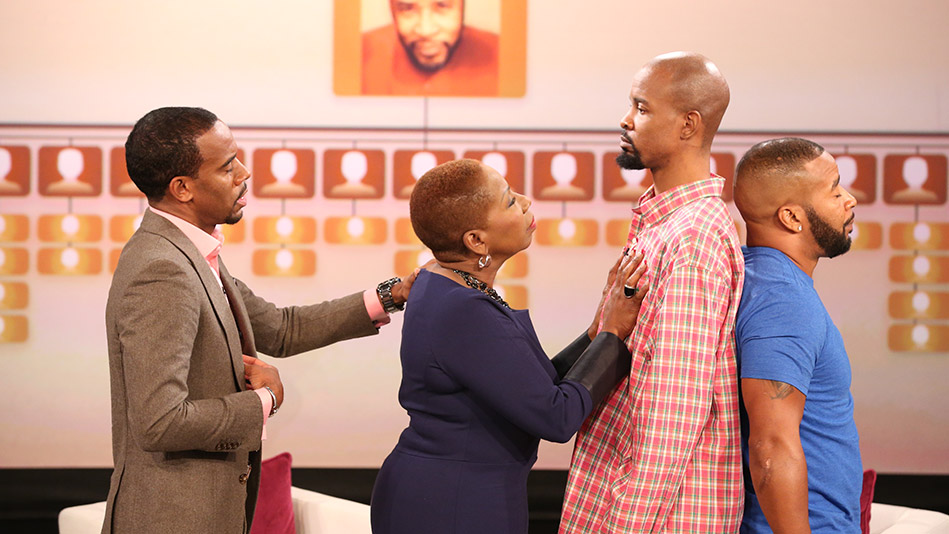
Jay Williams: How Do We Fix Us?
We have been frustrated, almost frantic, about young people killing themselves and each other, about young men failing out of what appears to me as an inadequate educational system, and about young women taking their clothes off to make money to feed the children they have with young men who fail to step up to the plate. We have been pointing our fingers at this reason or that cause while making little progress toward a real understanding of the issues or a lasting solution. On the surface, the Jay Williams story has brought to light all the sordid details about one person's seeming irresponsibility, lack of discipline and wanton disregard for other people. At a deeper level, I recognize this as what happens when we are not taught that we are valuable, worthy, powerful and important. I now understand that the Jay Williams story is all about self-value, self-respect and self-worth gone awry because of the lack of effective and meaningful conversations and much-needed instruction at every level of society.
There are moments in time when we find ourselves in the midst of a sacred experience, a time of change, an opportunity for healing that can leave us breathless or totally confused. We have all found ourselves in a moment of time that started out pointing us in one direction and ended up with us either scratching our heads asking how we got here, or weeping with joy that we have arrived in the place in which we find ourselves. Life has a way of opening our hearts and minds to greater possibilities and at the same time pushing us into some pretty scary places that we would rather not visit or even acknowledge. All students of spiritual law know that we are always exactly where we need to be. This has been my experience with the Jay Williams story.
As this story has unfolded, I have sat in the midst of what happens when people cannot hear each other, when they do not know each other and when they allow the pain of their unhealed hearts to govern their choices. I have seen firsthand how we use each other as a balm to heal the places we don't know how to talk about. It is much clearer to me why it is never a good thing to reach out for something to make you feel better when the core and roots of the issues are within you. I am also convinced that with all the advantages of the technological world in which we live, we have all but abandoned the need to teach people how to connect with one another in an authentic, meaningful and healthy way. We can build spaceships, yet many of us still don't know how to create meaningful relationships that honor and respect everyone involved. We can earn college degrees online, but few of us will admit that we are inadequately equipped when it comes to telling others the truth about how we feel and what we really want from them. We can enlist and pay people to risk their lives on foreign soil to promote what we know as democracy, yet we will crawl into bed with people, lie to them in order to feel good and walk away with no recognition that we may be leaving behind the seeds of life that will explode into a generation of pain and dysfunction. The Jay Williams story has challenged me in new and exciting ways to listen more deeply and feel more compassionately. At the same time, it has taken me into the depths of human pain, despair and brokenness that has often been easily dismissed and judged as just another story of someone else's issues and dirty laundry.
We are aware that there is something going on in the African-American community and beyond that is producing a generation of people who do not fit into the mold of the traditional American lifestyle. We don't always know what to call it, but we will continue to mislabel it until we become willing to see it and talk about it as something more than a television program. We may not all agree about the causes of or the solutions for family dysfunction and the breakdown of cohesive communities, but we must become willing to discuss and address it without judgment. We have embraced a culture of diminishing responsibility by giving new names to traditional roles. Do the baby daddies and mamas not have the same responsibilities as fathers and mothers? Or, are they simply obligated to send checks, buy diapers and not attack the new boyfriends or girlfriends? How does it feel, and what is the impact on self-value, -worth and -esteem to be a child whose father is absent and whose mother wants to test his or her saliva to determine which of the several men she slept with must send her a check? How do we ignite and engage in a social conversation about the things that are destroying the very fibers of our ability to be healthy, productive individuals if we cannot look at the people who demonstrate the problems without calling them names (and attacking those who bring these stories to public awareness)? How do we make the distinction between exploitive entertainment and the possibilities of inner-tainment—programming that provides us with an opportunity to see ourselves publicly within the sacred confines of our own homes?
This story and all the people involved have touched my soul in a way that has no words. It has forced me to revisit places in my own life where I still have incomplete conversations and judgments of others and myself that need to be forgiven. Jay's story was an extreme case of family dysfunction and broken relationships; however, the issues it has brought to light are familiar and common to many. My prayer is that the fifth and sixth installments of this story will take us beyond social media into our hearts and souls, where we can begin to face a deeper level of truth about what Jay Williams represents in all of us. My hope is that the children who sit in the same place that Jay's children sit will give themselves permission to weep through the sorrow of it all and then tell their parents how they really feel about being the fruits of the healing they have not been willing to do. If this story is actually what I believe it to be—a wake-up call from the universe—men will stop making excuses, women will stop being angry, and people will start talking and healing the things that really matter: relationships, families and our collective investment in the future of this world. People may not agree about why I do what I do the way I do it. They may continue to question my motives, intentions and the size of my paycheck. That will not make this story or the issues it has placed on the table of public conversation go away. One man, one story, has opened the floodgates of healing, growth and a new reality. We simply must do better.
Tune in to a new episode of Iyanla: Fix My Life on Saturday, October 4, at 9 p.m. ET on OWN.











